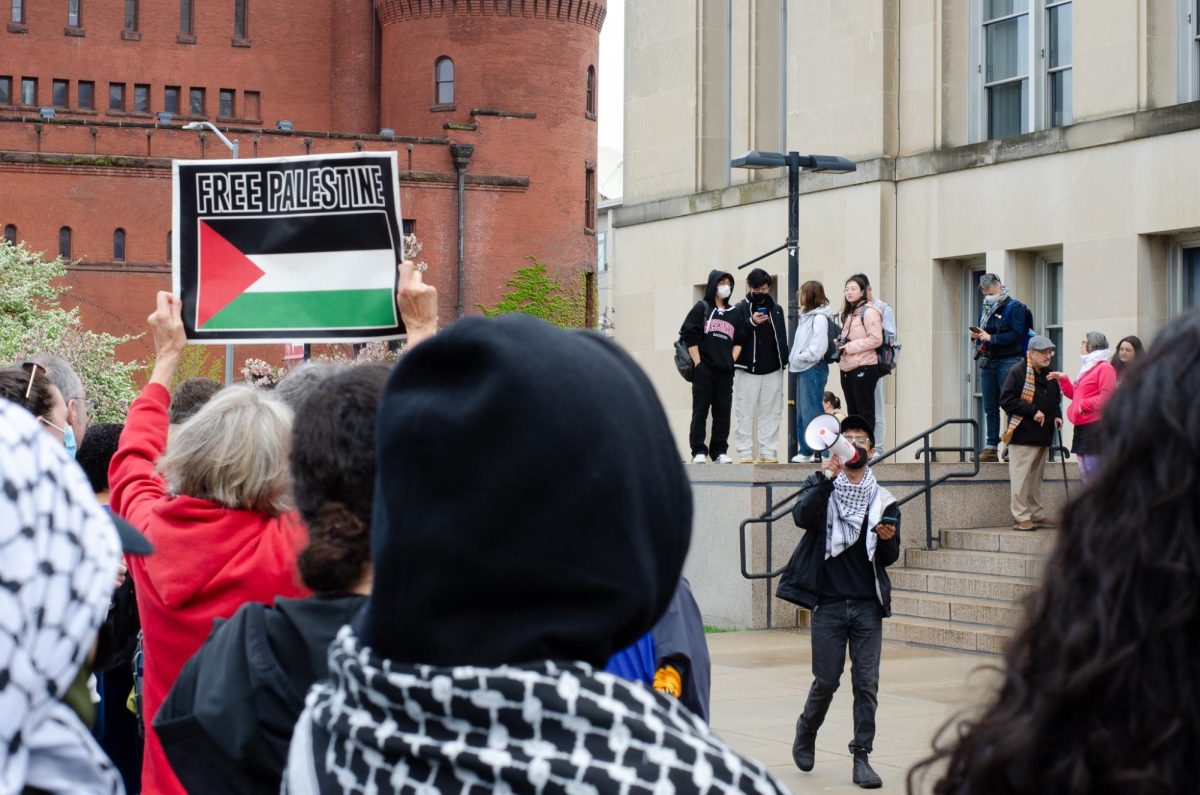
Tuesday marked Scott Walker’s 100th day as governor – a period of time characterized by a special legislative session on jobs that saw numerous bills passed he said would buoy Wisconsin’s economy, although experts said the impact has yet to be realized.
Walker said he committed the first 100 days in office to bolstering the private sector’s abilities to hire more Wisconsin workers, with his ultimate goal being 250,000 new jobs by the time he leaves office. Walker called his time so far one of the most productive periods in Wisconsin’s history.
“The line of our accomplishments sends a strong message to employers all over the globe that Wisconsin and her people stand open for business,” Walker said in a statement. “These past 100 days have seen many bold reforms, but it is only the beginning – there is more work to be done.”
Still, University of Wisconsin political science professor Barry Burden said he believed calling Tuesday the governor’s 100th day in office was inaccurate. Walker’s authority as governor began in November, Burden said, when Walker made requests to former Gov. Jim Doyle to stall on pressing issues facing Wisconsin.
The decision to stop the high speed train project between Milwaukee and Madison could have been pushed through by Doyle, but no action was taken because of the then-Gov.-elect Walker’s loud disagreements with the enterprise.
Another legislative issue Walker influenced was the passing of public employee union contracts in December, which Burden said did not take place because of the incoming Walker administration’s complaint it would not be able to handle the state’s fiscal situation while forced to comply with the contracts.
But has Walker been successful in his first official 100 days? Burden said it depends on what indicators are chosen to judge Walker.
If using the state of the economy to gauge Walker’s success, Burden said Walker is doing alright.
“Wisconsin is no worse off and may be a little better off, just like the national economy,” Burden said. “There is a little more hiring going on, and unemployment has dropped a little bit; so have unemployment claims.”
He added that policy instruments like budgets take awhile to have an effect so the true impact of Walker’s first few months on the economy would have to wait another two months to be seen.
Walker’s legislation to limit collective bargaining, though, brought the governor in over his head, Burden said.
The prospect of losing public employee bargaining authority brought thousands of public and private workers, students and interested citizens to the Capitol for more than a month. Burden said Walker may have temporarily alienated some Republican voters from the party, such as firefighters, teachers, nurses and university staff.
Some of that anger led to people doubting Walker’s early tax cuts for businesses, claiming they actually created the crisis. However, UW economist Andrew Reschovsky said the tax cuts hardly created the current shortfall. The cuts did add $117 million to the deficit, but Reschovsky said that number is not significant within the context of the total $3.6 billion deficit.
Still, Reschovsky said he would not have chosen to repair Wisconsin’s budget woes through tax cuts to businesses.
“If the governor had asked my opinion whether these were likely to be effective policies worth the money in job growth, I would have suggested it would not have been effective,” Reschovsky said.
He added the issue of whether tax cuts to businesses create more jobs and a better economy has been studied by economists for a long time.
The evidence, Reschovsky said, lead him to believe that tax policies would not be the ultimate factor in determining where a business locates, if it expands operations and if it hires more workers.



















